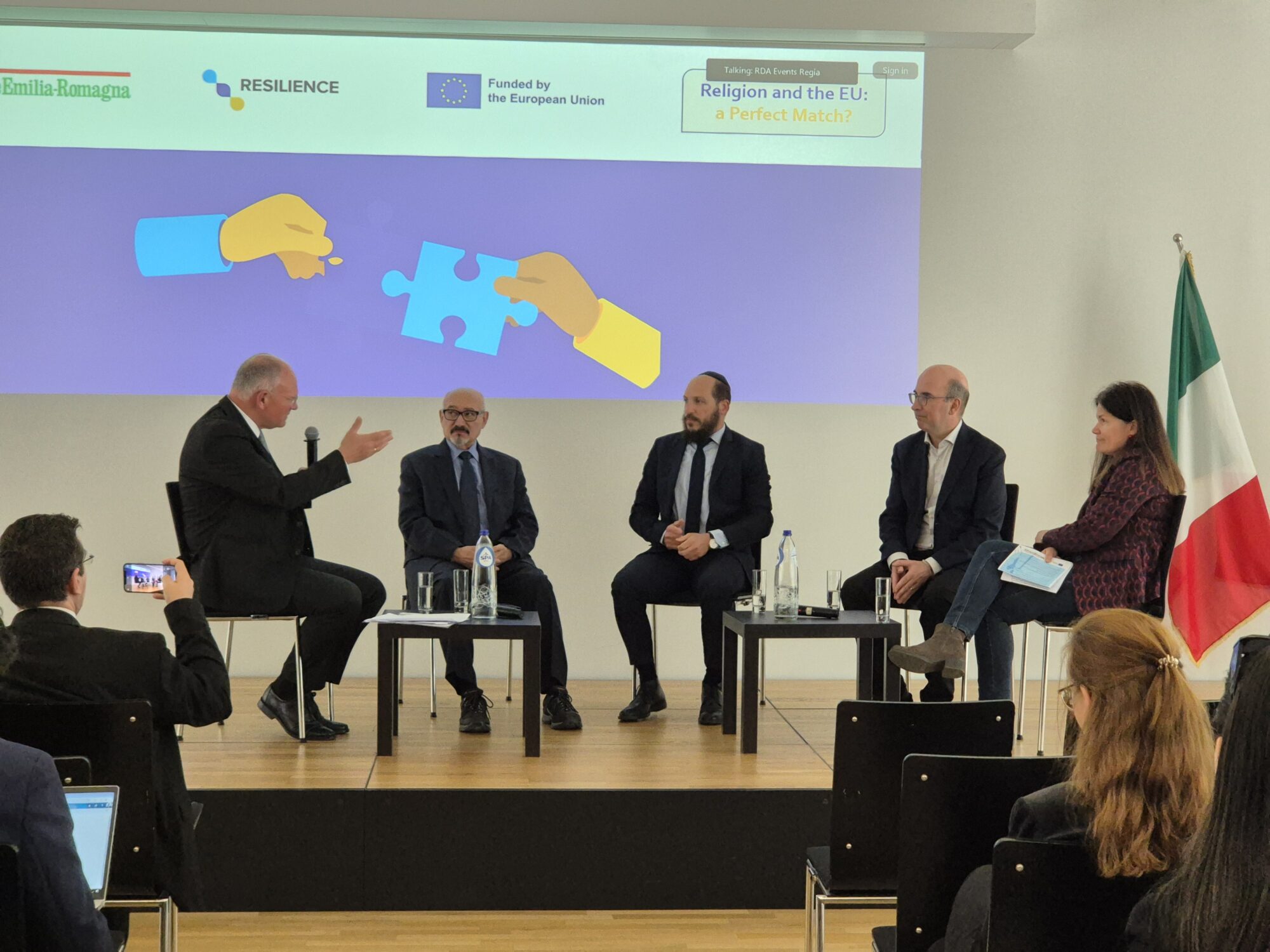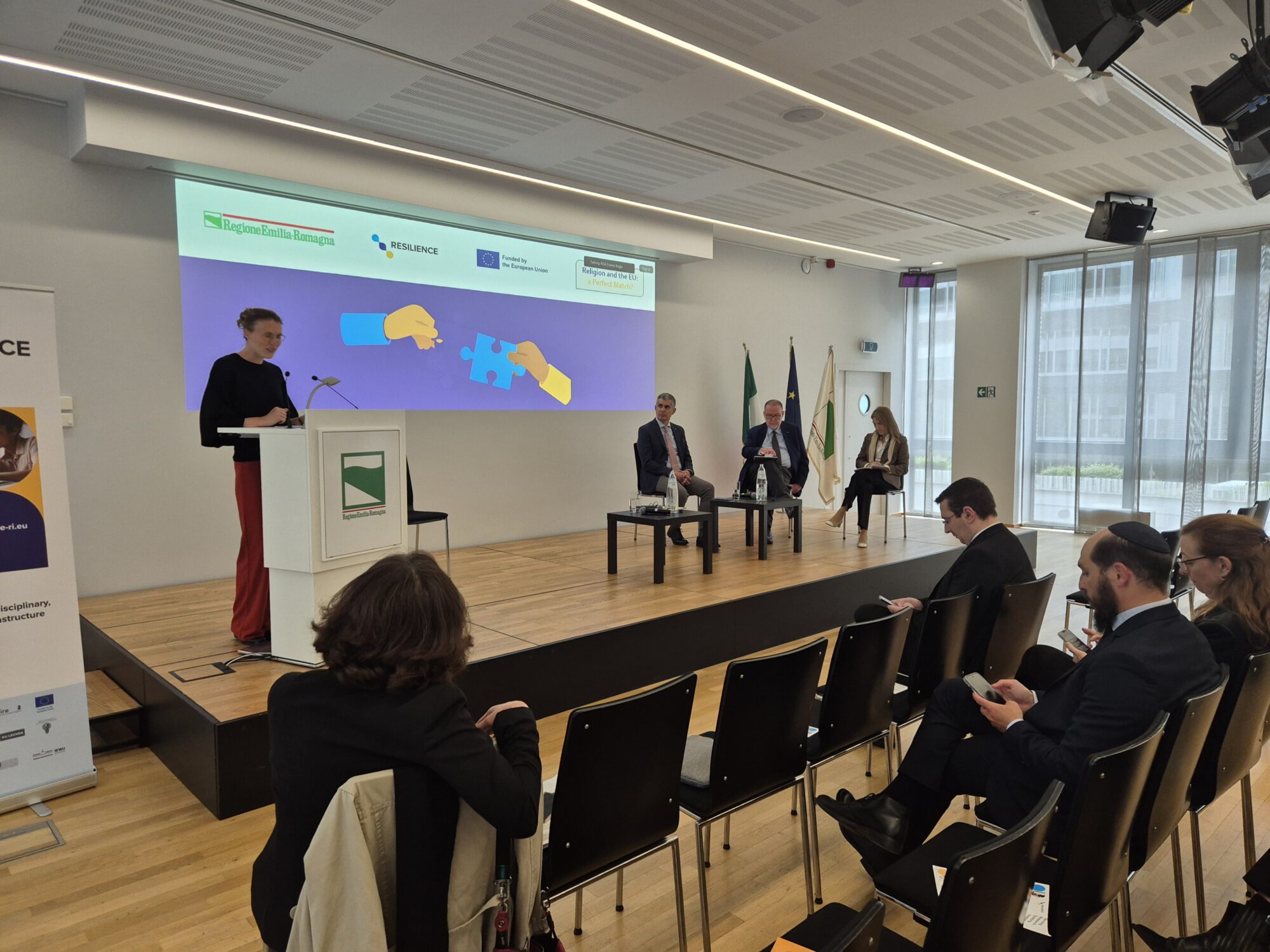Discussing the Impact of Research on Religion
The event "Religion and the EU: a Perfect Match?" in which representatives of various institutions and organizations participated, offered valuable insights into the significance of research on religion for society, culture and for science.
Roundtable 1 started with an invitation to the speakers to answer the question: Can academic research on religion really have an impact on social society and culture? If so how, if not, why not?
According to Vincent Depaigne (coordinator for the dialogue between the European Commission and churches, religious associations or communities and philosophical and non-confessional organisations) the basis precondition for building trust and truth is that there is academic freedom. “And then let the universities do their work, that will generate the best impact.” According to Avi Tawil (European Jewish Community Centre), and to have a unitied Europe, we have to understand better the impact of our individual culture. Activities dealing with diversity will bring more resilience into societyand will not pull us apart. Amb. Abdulkhaleq Al Yafei (Permanent Mission, Organisation of Islamic Cooperation Brussels) answered the question with a clear: Yes, academic research shapes how society understand itselve. Academic research does and can impact culture and society. Also for Katrin Hazinger (EKD Office Brussels) the answer was a yes. She fears that religion plays a central role in transformation times now, which is an important factor to look at. At the same time religion has always been a political driver, it must be taken seriously.
As to issues arising in society, the speakers of roundtable 1 agreed that research on religion cannot solve them directly, however, it can help in in the sence of facilitating the debate and making the ground more even.
 Impression Roundtable 1, left to right: moderator Herman Selderhuis, Amb. Abdulkhaleq Al Yafei, Avi Tawil, Vincent Depaigne and Katrin Hatzinger
Impression Roundtable 1, left to right: moderator Herman Selderhuis, Amb. Abdulkhaleq Al Yafei, Avi Tawil, Vincent Depaigne and Katrin Hatzinger 
Impression roundtable 2, left to right: moderator Lieneke Timpers, Francesco Raphael Frieri, Alberto Melloni and Patricia Postigo McLaughlin
The second round table focused on the impact of research on religion on policy and innovation and on how RESILIENCE can contribute to that impact. Alberto Melloni (Fscire) gave examples of how RESILIENCE can bring research on religion to a higher level, taking his starting point in religion being essentially different from other disciplines. That is also the reason why research on religion needs its own RI. Patricia Postigo McLaughlin (DG Research & Innovation, Unit A4 Research Infrastructures) and Francesco Frieri (Emilia-Romagna Region) confirmed this and added to the argument that solid research can also invigorate religions as well create more mutual understanding between religions.
Host
The event held May 7, 2025 in Brussels and was hosted by the Emilia-Romagna Region in Brussels.